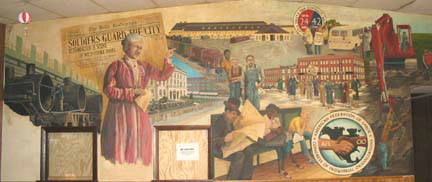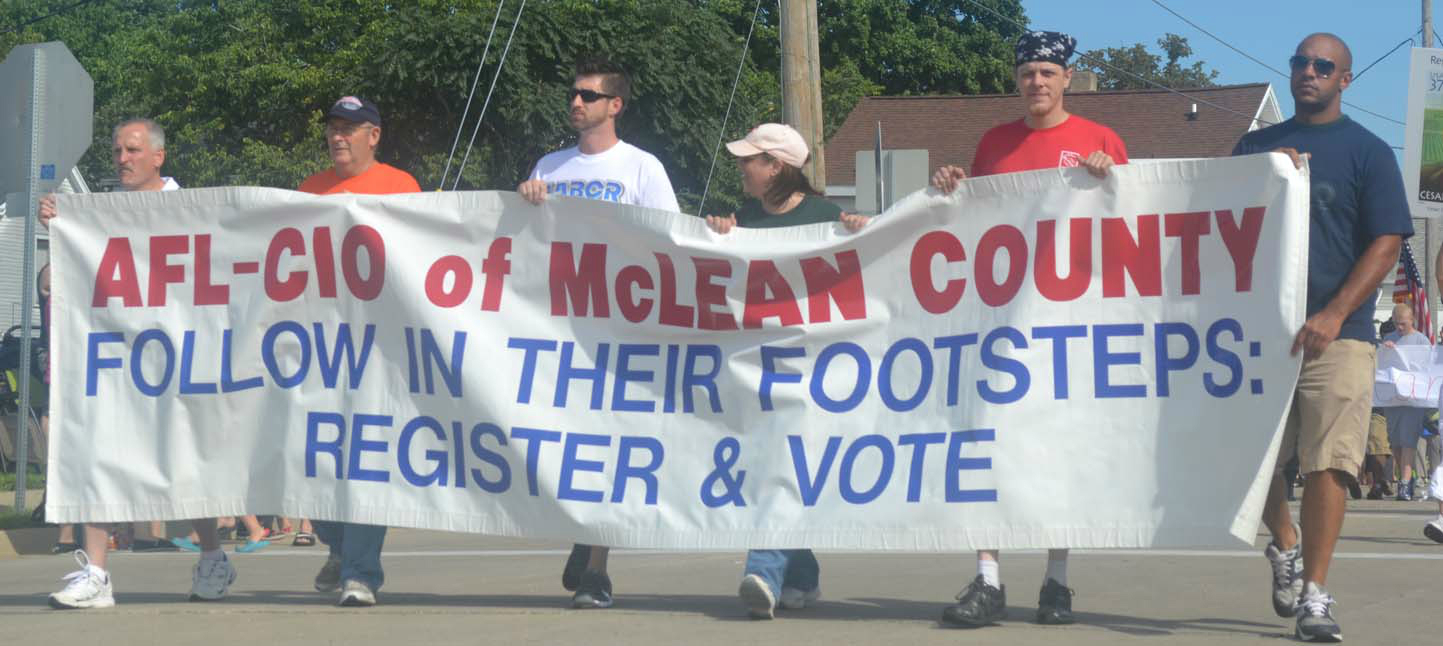|
A labor film for the 21st century
Does the 21st century finally have the labor movie it deserves?
Look no further than Boots Riley’s Sorry to Bother You, an outlandish yet telling mix of old-fashioned workplace confrontation, race and gender relations mixed in an bubbling stew of hyper-capitalism. If “ethics” and “capitalism” is an oxymoron, this film takes that dialectic to new heights.
Young African-American Cassius “Cash” Green (Lakeith Stanfield) lives in a garage in Oakland, California, drives a pock-marked car, cruising streets full of homeless people. Perennially slack-shouldered and bent down, Cash scores a dead-end job as a telemarketer, a cubicle rat in a maze of disenchantment, berated with a steady diet of corporate speak and “team work” rhetoric. Nightly entertainment is provided by the hit TV show, I Got the S#*@ Kicked out of Me!, where hapless contestants endure humiliating physical abuse.
Cash breaks out as a telemarketer, once he learns how to talk white (voiced by David Cross). Literally plunging into client’s bedrooms, kitchens and bathrooms, Cash is making the sale and is soon riding the literal golden elevator to the pinnacle of telephone success.
But what is he selling? Cheap labor and high-tech armaments. In an over-the-top scam, hungry and desperate people are signing up to join “Worry Free.” Sleeping together in bunk beds and eating food off trays, the unsuspecting Worry Free victims are guaranteed food and shelter, but nothing more – modern slavery. Cash scores his big time hit when he convinces an Asian mobile phone mogul that Worry Free workers can undercut Chinese factory workers.
The golden elevator takes Cash to an upscale apartment, new car and a white upper echelon where the champagne flows with every new deal. His white voice ensures success and he is constantly admonished to use it. What of his old friends from the streets and the cubicle, his aspiring artistic girlfriend Detroit (Tessa Thompson) and the challenges they face?
Spurred by “Squeeze” (Steven Yeun), the multicultural telemarketers first stage work stoppages and finally take to the streets, launching the Telemarketers’ Union. Cash’s dilemma rears its head: does he honor his friends and their picket line, or does he continue to ride the golden elevator as a “power caller?”
At first, he crosses his friends, as daily corporate storm troopers break through the picket line. Cash’s rising star brings him an invitation to Steve Lift’s (Armie Hammer) mansion, where he’s forced to rap (the assumption that all African-Americans can spontaneously perform), stumbling until he begins using racial epithets to delight the crowd.
Lift, claiming his schemes are all benevolent, offers Cash a huge sum – for an ultimate betrayal, not only of his fellow workers, but of the human species.
Not to spoil, see the film to understand the shocking depths that profit hunger entails, as Cash faces capitalism gone wild.
Some commentators argue which is more important: race, gender, class? Riley’s film plunges deep into that tangle, artfully showing how these human divisions intertwine and reinforce.
With a little on-screen nod to Norma Rae, the film captures what so many labor-themed films have echoed – the embattled working class struggling for their fair share. Yet Sorry goes deeper. At the film’s end, the telemarketers can claim a little more dignity. Yet rampant capitalism still looms. Is our future marked by Worry Free, a plausible yet frightening exchange of human labor for minimum needs?
The working class gets a modicum of relief and an overdue voice when they organize across barriers of race and gender. In our current economic straits, no battle won is a war concluded, and that’s the troubling dilemma that haunts this rich and darkly-humored film.
Mike Matejka, Grand Prairie Union News
See http://sorrytobotheryou.movie/
|



